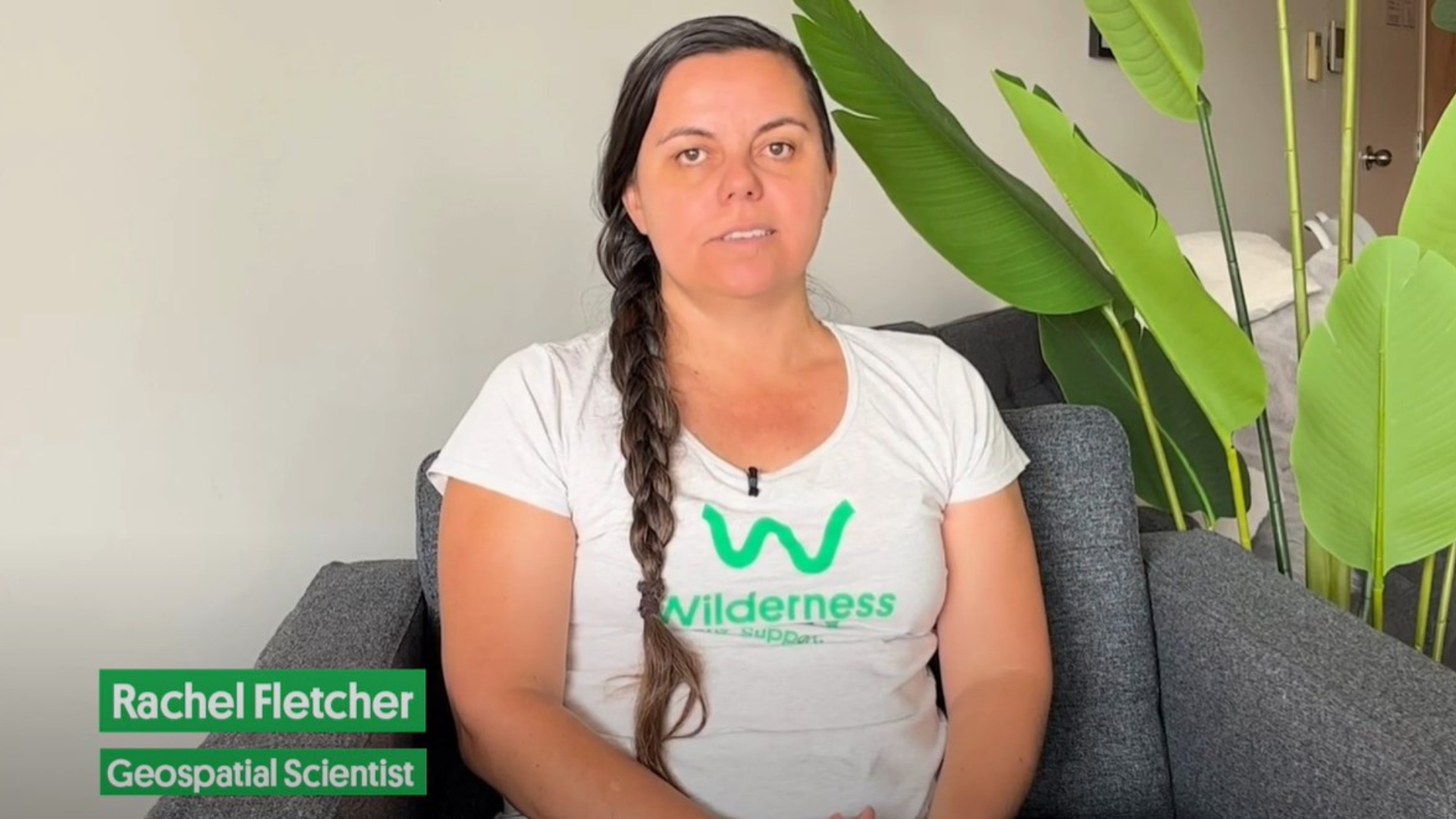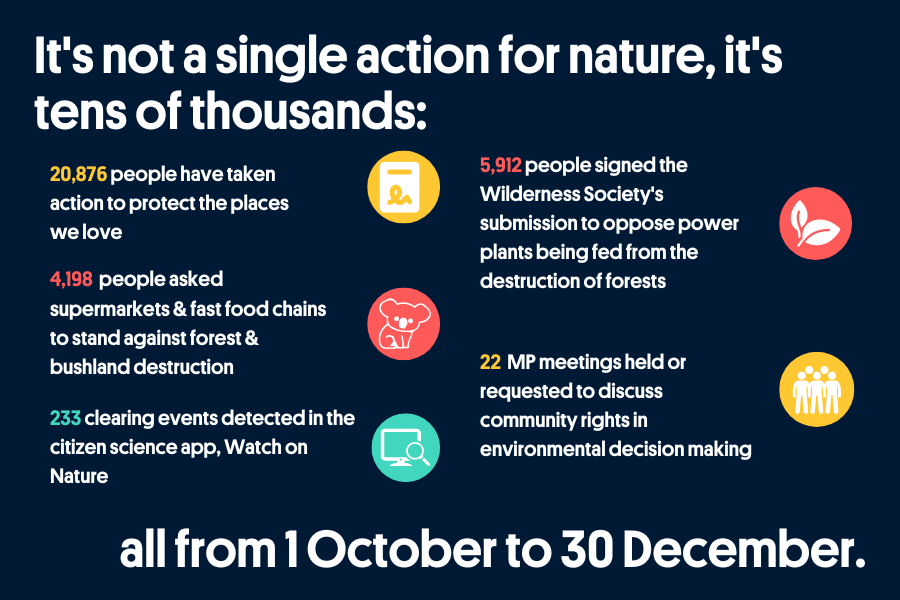More highlights
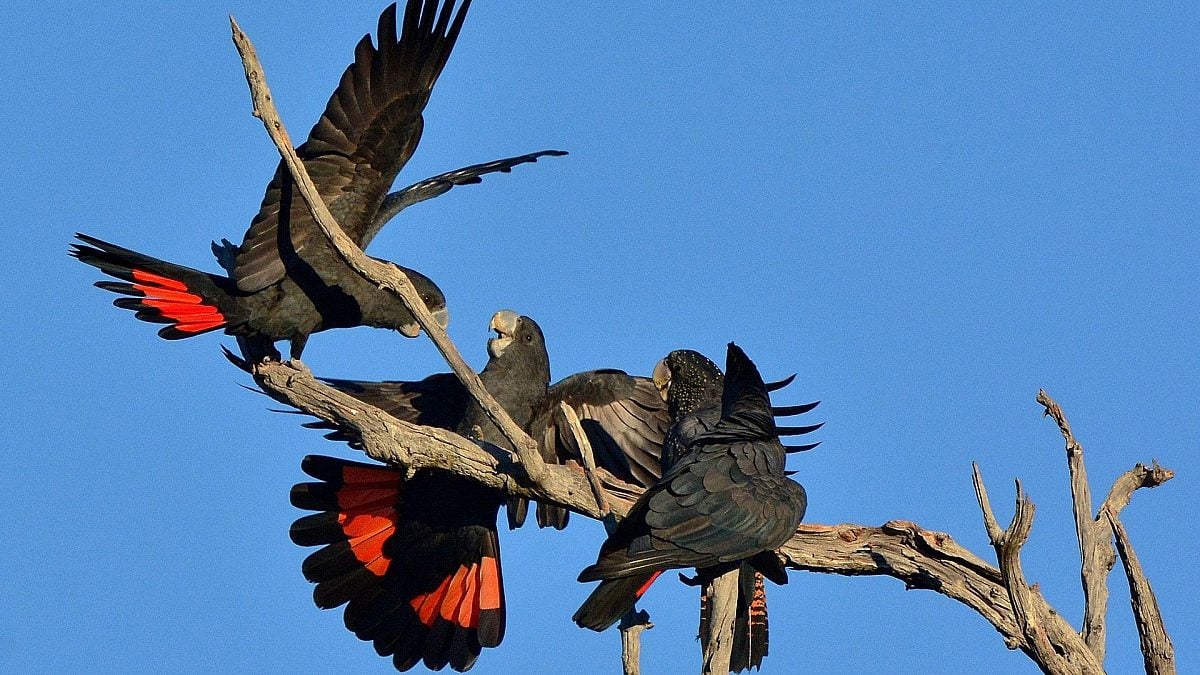
Finishing 2022 on a high
Highlights from October to December 2022
Backed by people like you, we closed out 2022 with a bang! Together, we’ve made decision-makers aware of Australia's deforestation crisis; continued to fight for the integrity of World Heritage in lutruwita / Tasmania; exposed deforestation through rolling out satellite monitoring tool Watch on Nature; and supported some must-watch nature films to boot.
Watch on Nature
Geospatial Analyst at the Wilderness Society, Rachel Fletcher uses satellite mapping to track and report on the loss of forests and bushland across the continent. She helped develop the cutting-edge technology behind Watch on Nature, the Wilderness Society's new community-powered app that will help monitor deforestation across Australia—and put a stop to the deforestation crisis.
Thanks to your support, we’re using technology to help protect Australia’s iconic species like the black cockatoo, swift parrot and koala.
What's wrong with our rights?
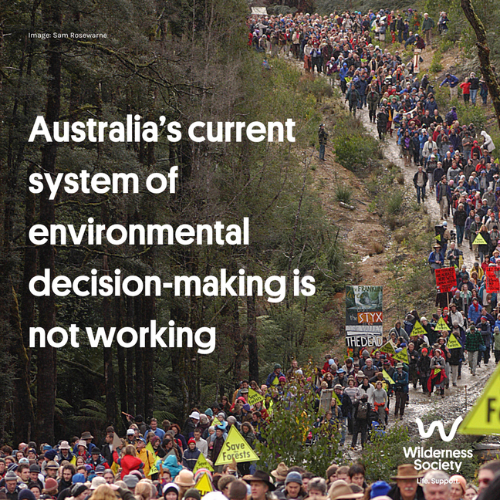
For years, your support has allowed us to work alongside communities that are overwhelmingly opposed to destructive projects, but those projects often go ahead because corporations have a more powerful voice in our system.
In the Pilliga, for example, 98% of the 23,000 community submissions opposed the Narrabri gas project—but the NSW and federal governments approved it anyway. And in the Great Australian Bight, the federal government gave Equinor permission to drill for oil despite 30,000 community submissions opposing the plan. In this case, the intensity of community opposition eventually forced Equinor to walk away—but it shouldn't have taken costly legal action and massive protests to get the right outcome for nature, when the community’s view had been clear for years.
Thanks to you, we recently released a report (based on legal analysis from the Environmental Defender's Office) exposing the root of the problem: environment and planning laws are failing to give communities a meaningful say in environmental decision-making.
A key finding of the report is that there is a systemic problem with upholding the three environmental community rights: the right to know (access the information held by authorities and proponents), the right to participate (have a meaningful say in decision-making), and the right to challenge (seek legal remedy if decisions are made illegally or not in the public interest).
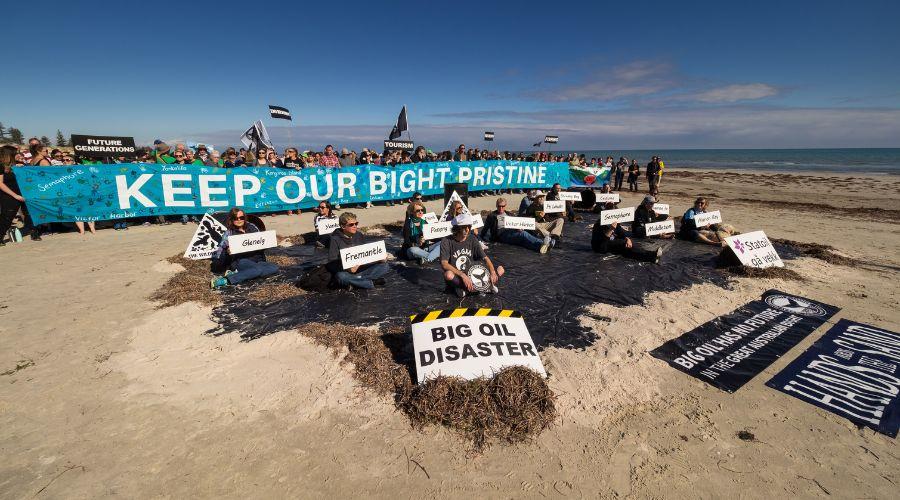
Together, we’re calling for governments across Australia to enshrine and activate community rights in environmental decision-making.
If communities across Australia are empowered with a nationally-consistent standard of strong environmental community rights and are able to have a genuine say in decisions that affect them and the environment, we’ll see better outcomes for people and nature.
In numbers
Update: new nature laws
For the last decade, the Wilderness Society and tens of thousands of people like you have been campaigning for strong and effective nature laws, with legislated environmental standards, and an independent watchdog with teeth to enforce them.
In December, Environment Minister Tanya Plibersek announced a comprehensive response to the 2020 independent Samuel Review of the national nature law, the EPBC Act.
When the EPBC Review began, Wilderness Society local teams hosted workshops to develop submission-writing skills in their communities, resulting in 400+ personal submissions being made to the independent review.
These reforms were then reflected in the final recommendations of the Review. Together, we stopped the Morrison government’s persistent rush to roll back our nature laws. This was only possible because of people like you.
And together, we have continued to call on successive Commonwealth governments to reform Australia’s national nature laws, to end Australia’s extinction crisis, and guarantee Australians the right to have a genuine say in environmental decision-making.
Minister Plibersek’s announcement raises the bar on several reforms, which are essential to restoring the community’s trust and confidence in environmental decision-making—as promised by the Albanese government when it was elected.
Key announcements include:
An independent Environment Protection Agency, that will make the decisions about approving or refusing development projects.
National Environmental Standards are proposed. As recommended by Samuel, these include: community consultation and participation, Matters of National Environmental Significance, and a co-designed First Nations standard—yet the strength of these is yet to be determined.
In principle all industries will be covered by these new laws—including native forest logging, for decades exempted from national environment laws. It is unclear how this will operate in practice, and when. This is a welcome reform, as no industry should be given a free pass in an attempt to profit from species extinction and environmental decline.
The water trigger will be extended to cover a broader range of onshore fossil gas extraction projects meaning greater oversight of the groundwater impacts of fossil fuel projects.
Yet, there are some serious concerns around:
A regional planning approach that risks continuing to facilitate the destruction of nature, rather than protect it.
Ongoing entertainment of devolution or accreditation to the states to assess and decide development applications, removing strong and effective Commonwealth oversight of decisions that affect Matters of National Environmental Significance.
The lack of a climate trigger, and a land clearing trigger. These are necessary to ensure the assessment of projects—that could cause significant carbon pollution emissions or bulldoze high conservation value forests and bushlands—are properly assessed for approval, or refusal.
Insufficient safeguards are in place to build trust and accountability in the system. Especially the absence of merits review which would give the community the right to challenge decision-making in court for development projects on an evidence basis.
At the heart of the reforms however, lay a potential fatal flaw. The government has sought to bring in regulatory reforms a notion of “an environmental market”.
What’s worrying is the attempted rewriting of regional planning and biodiversity offset rules to support this. Is this “market” going to be the tail that wags the dog to approve environmental destruction?
Must-watch films
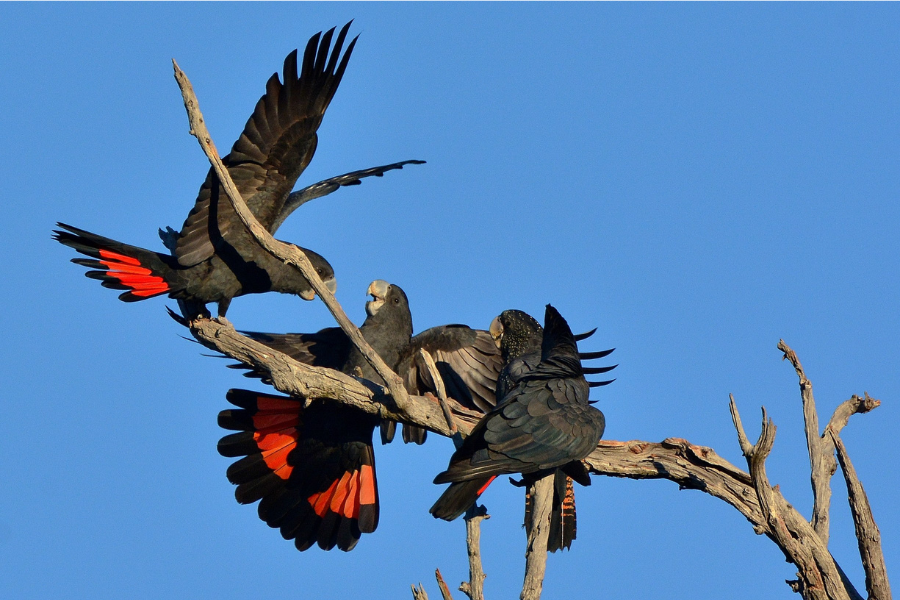
Two must-see nature films were released towards the end of 2022. No, not Avatar 2.
Franklin, a new documentary from director Kasimir Burgess, premiered at the Melbourne International Film Festival to much acclaim. It follows environmentalist Oliver Cassidy as he retraces the journey his late father made down the Franklin River in the early 1980s to join the Franklin Blockade. His father, Mike Cassidy, was a lifelong campaigner and activist, and a convenor of the early Wilderness Society, which was formed in 1976 to stop the damming of the Franklin. We spoke with Oliver about his deeply personal, dangerous yet spectacular rafting expedition and the film's producer Chris Kamen about some of the challenges faced bringing the story of the Franklin to a new audience in issue #020 of Wilderness Journal.
Franklin is showing at select cinemas. Check out upcoming screenings. You can also stream the film on SBS On Demand or rent from YouTube.
The Wilderness Society was proud to be an associate producer of Black Cockatoo Crisis, which premiered on 23 November. It’s an urgent appeal to stem the decline of some of WA’s most charismatic birds, which depend on the jarrah and karri forests. Environmental filmmaker Jane Hammond introduces her film in issue #021 of Wilderness Journal, a special edition about WA’s spectacular jarrah forests.
Coming to a capital city near you. Purchase tickets.
Tactical advertising in the EU delivers!

For 24 hours from 29 November, the Wilderness Society launched a takeover of the POLITICO EU homepage. The advertisements formed part of a strategic campaign to raise the profile of Australian deforestation in Europe.
Corporate Campaigner, Adele Chasson, explains the timing and aim of the advertisements:
“POLITICO is the number one most influential news source among EU decision-makers,” she says. “The week after we ran this takeover of POLITICO, EU lawmakers got together to make important choices on the Deforestation Free Regulation banning products linked to deforestation from entering the EU market.
“Earlier in 2022, we had a win when the Parliament voted in favour of a very ambitious Regulation to help stem deforestation around the world. MPs were then trying to reach a compromise with all the EU member countries, who wanted to lower the level of ambition and backtrack on some of these wins.
“With these ads, we let them know that their choices mattered for nature in Australia, which is a deforestation hotspot they might not have known about. They could either create strong laws that will actually protect iconic Australian animals and plants, or they could turn a blind eye to the destruction.”
On 6 December 2022, EU countries and Members of the European Parliament agreed to introduce a groundbreaking law to ban products linked to deforestation from entering the EU market.
Read the Wilderness Society's statement after EU institutions reached the deal: while there is a lot more that could be added to the law to make it work in places like Australia, it’s still a world first towards better nature protection.
“With adverts like this, we're helping make corporate and policy decision-makers aware of their involvement in destructive industries in Australia, and influence them to help end deforestation here,” says Adele.
Community organising
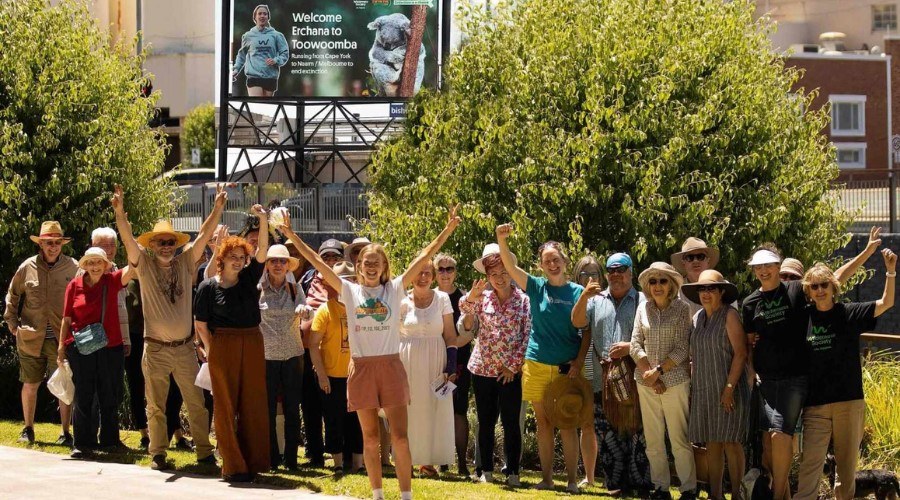
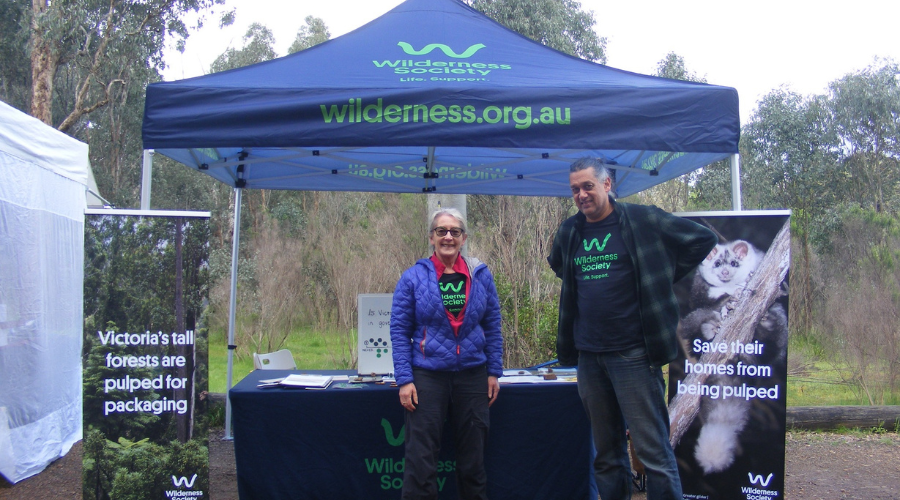
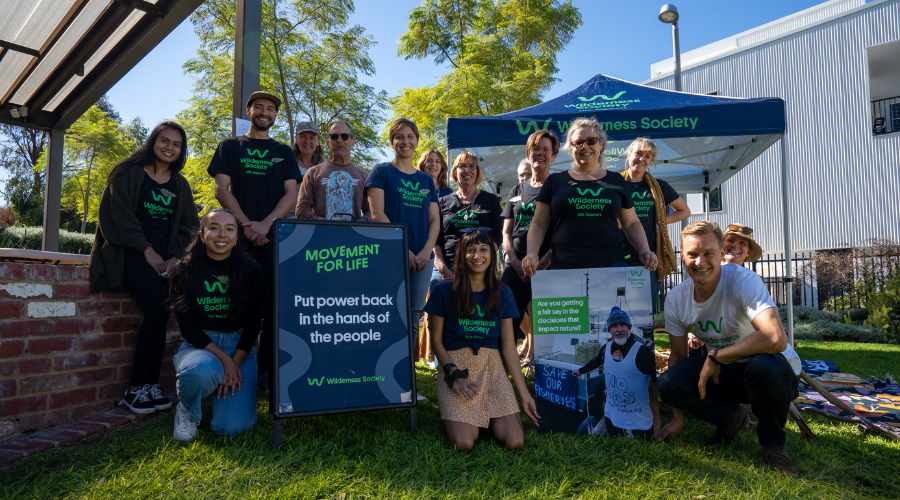
On 15 November, the Wilderness Society Toowoomba grassroots team put together an amazing event to welcome Erchana Murray-Bartlett to town. Erchana was running 150 consecutive marathons from Cape York to Naarm / Melbourne. She stopped in Toowoomba to learn more from the team about their work to protect koalas from habitat destruction and deforestation. The team welcomed her to town with billboards and a small event—and got heaps of media attention for 7 News and WIN.
Wilderness Society volunteer groups have been talking to their fellow community members at market stalls, through online community forums and local media, to hear their thoughts on the pulping of Victoria’s tall forests. The groups have taken what they’ve heard from these conversations to meetings with their local state election candidates. The groups are continuing to engage with their local communities and will provide the survey results to their State MPs following the election—to help show just how much their communities care about Victoria’s tall forests.
Over the past couple of years, they have been lobbying/working with their council to ensure that Fremantle's Urban Forest Plan is successfully implemented. Initially, the council was falling behind on targets mainly due to budget constraints. The Wilderness Society's Fremantle team (Fremantle Environmental Collective—FEC) changed the story by raising community awareness and hype around the need for urban trees. As a result, a comprehensive review of all things trees in Fremantle was undertaken by the council and funding towards the implementation of the Urban Forest Plan was increased.
Biomass loophole closed!
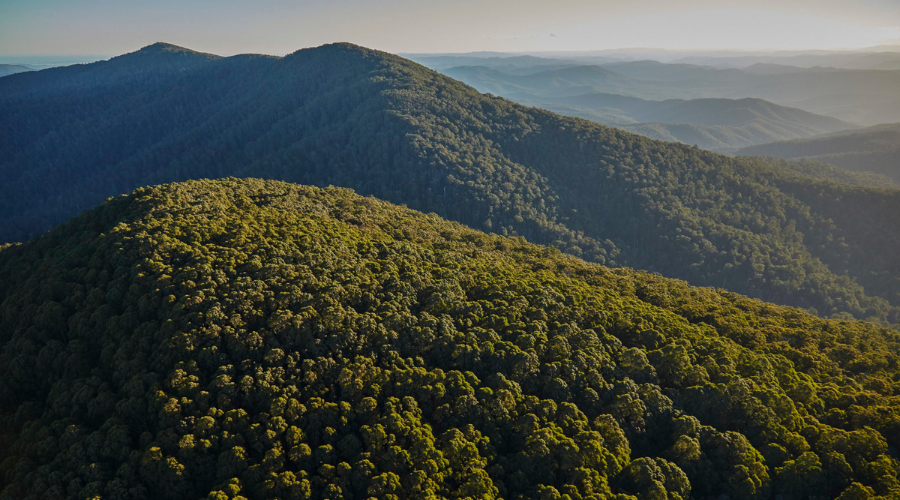
In October, the Federal government ran a public consultation that essentially asked this question: Is burning native forests renewable energy? Nearly 6,000 people like you added their names to the Wilderness Society’s submission saying a resounding NO.
Australia’s forests and the amazing wildlife that call them home are still recovering from the catastrophic Black Summer fires of 2019–20. Despite this, and the ongoing wildlife extinction crisis, some vested interests were eyeing off the chance to burn forests in power plants for electricity in the name of “renewable energy”.
Historically, a federal Labor government established in law a protection from this menace but the subsequent Liberal and National government ripped it up. Together, we applied pressure on the current government to put that protection in place once more.
In December, the Wilderness Society welcomed the Albanese government’s reversal of the Abbott-era decision to allow the burning of wood to generate electricity to be considered ‘renewable’.
Thanks to your support, the government closed the loophole that allowed logging native forests to feed electricity furnaces!
40th anniversary of World Heritage in lutruwita / Tasmania
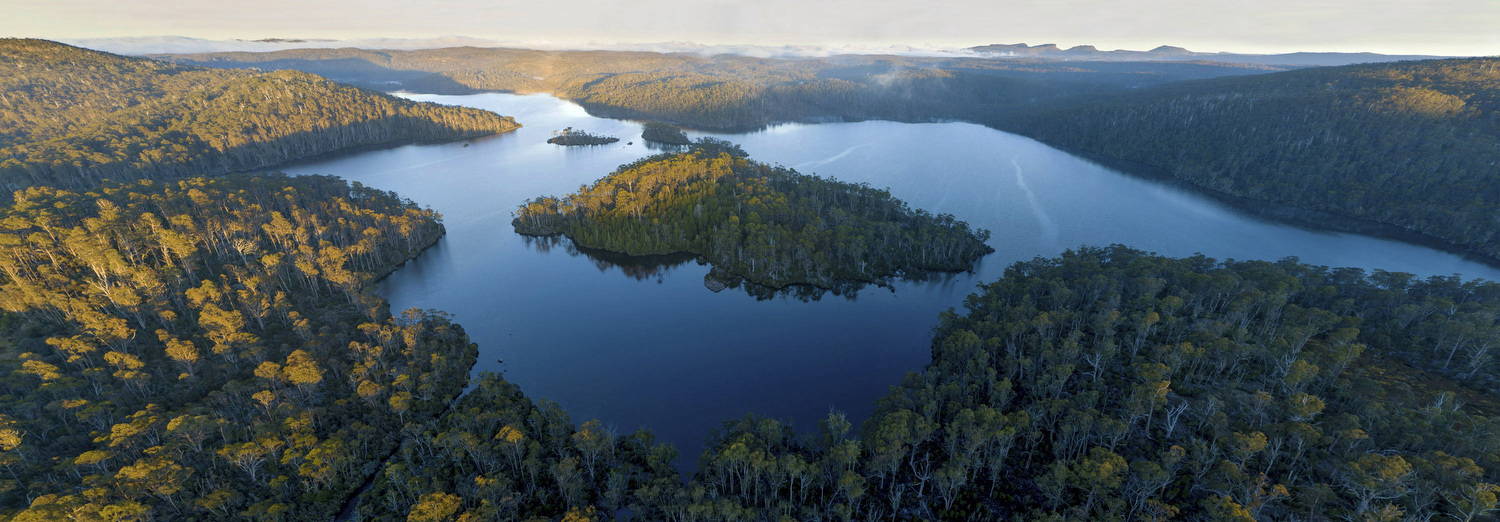
14 December 2022 marked 40 years since the World Heritage Committee met to consider new places for World Heritage status at its headquarters in Paris. On that list was the Western Tasmanian Wilderness National Parks.
The United Nations World Heritage Committee decided to inscribe the Tasmanian Wilderness World Heritage Area (TWWHA) for its unique cultural and natural values. The decision would create one of the largest conservation areas in Australia and prove to be decisive in the campaign to stop the Franklin Dam.
40 years after the creation of the Tasmanian Wilderness World Heritage Area, the Wilderness Society continues to defend its integrity.
In September 2021, the Full Court of Tasmania’s Supreme Court overturned a decision to grant a planning permit for Wild Drake’s controversial tourism development on Lake Malbena in the Tasmanian Wilderness World Heritage Area.
It was a significant legal victory for the long-running Wilderness Society campaign to protect this special place. This outcome wouldn’t have happened without the critical support of people like you who have kept this campaign moving forward.
At the time of writing Wild Drake hasn’t changed its scheme, and is again seeking approval to go ahead with its reckless plans. “We are calling on the Tasmanian Government to end its parks privatisation policy and to recognise that it lacks social licence because the clear majority of people don’t want public national parks privatised,” says Tom Allen, Campaign Manager for lutruwita / Tasmania. “We won’t stop until the integrity of the state’s World Heritage is protected for good.”
A win for precious forest, its wildlife and the community
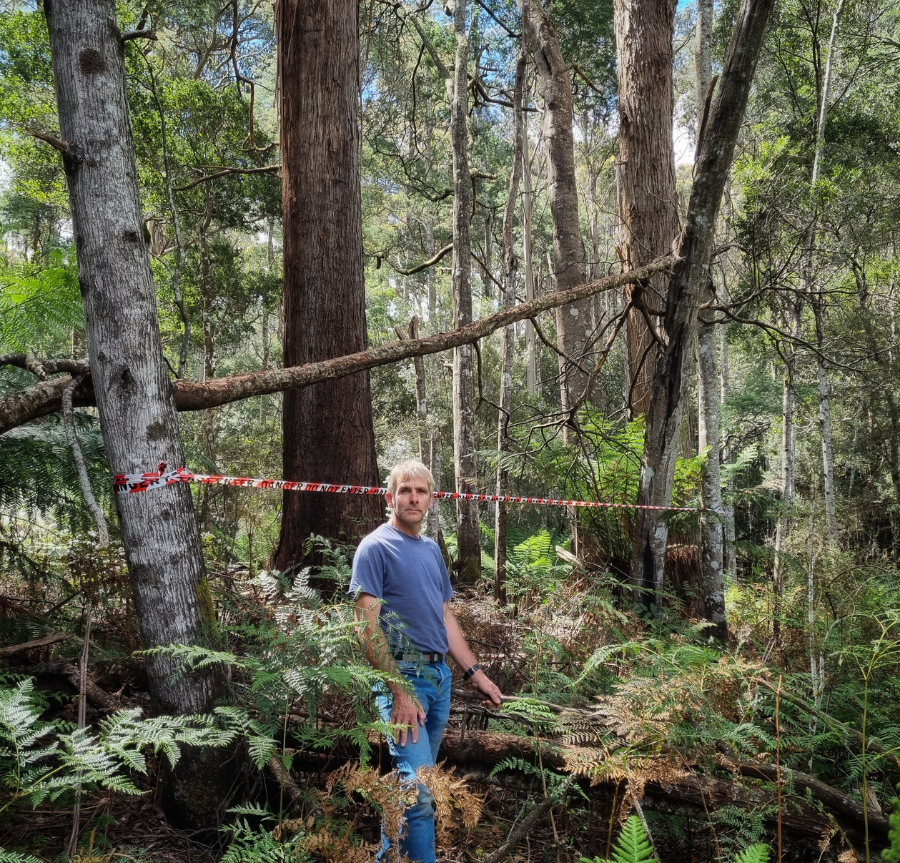
Mt Tongatabu, in the south of lutruwita / Tasmania, has always been a refuge for wildlife and the community—a place people go to feel restored. But a recent decision to log the forest there—made against the wishes of many local people, and with almost no warning—has shattered this idyllic landscape.
Neil owns an organic apple orchard that borders the forest earmarked for destruction. He’s deeply concerned about the impacts the logging will have on the delicate mountain ecosystem—particularly the potential polluting of the water sources—and on the wildlife whose homes are being felled or crushed. He and members of the local community cannot understand, what Neil describes as “the senseless destruction of this small but beautiful patch of forest.”
“This destruction is happening despite clear concern from the community, a request from the community to the logging company to keep us updated (which was ignored), and an indication from the logging company that it was unlikely to pursue logging here.”—Neil
In December, thanks to you, the Wilderness Society was able to help Neil take the Tasmanian government and its logging agency, Forestry Tasmania (trading as ‘Sustainable Timber Tasmania’), to the Supreme Court for access to documents that could show if the logging currently taking place on Mt Tongatabu is legal or not.
And we won—the Tasmanian government asked to settle at the last minute, and we’re awaiting the release of this information.With your support, we also filed an urgent injunction to halt the logging on Mt Tongatabu, which resulted in another victory! In a major reprieve for this precious forest, its wildlife and the community, the court order was upheld and logging here is forbidden “until further order”. None of this would have been possible without generous donors like you.
While ‘Sustainable Timber Tasmania’ has agreed to temporarily stop cutting down trees on Mt Tongatabu, the question of whether the logging is even legal remains unresolved for now.
